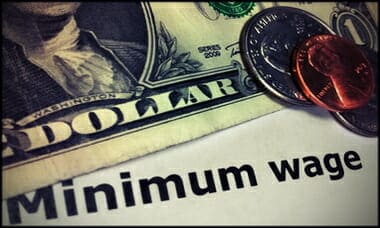While this is not clear cut, it does show a tendency on the part of Democrats.
May I point out that Mississippi and Louisiana should be exempt from this due to their debt via Catrina.

Hyscience wrote a good response to this “viral temper tantrum” that has Democrats apparently proud… even though Weiner is upset about hiding legislation. One must keep in mind that it was the Democrats who chose to require a two-thirds majority. They could have passed it with a simple majority if they so chose. They wanted a bunch of other bills passed with it, so they chose to go the two-thirds majority route and didn’t have all the Democrats on-board. That’s number one. Number two is that the The GOP only wants to make sure the bill is paid for before it passed. This, apparently, is not important to the Democratic party. I have a checking account, does that mean just because I have no money in it but still have blank checks I can write as many as I like? Well?
According to the NY Post, King, a key backer of the bill, had moments earlier accused Democrats of staging a “charade” (emphasis added):
The rift developed over how the bill was put before the chamber.Democratic leaders opted to consider it under a procedure that requires a two-thirds vote for approval rather than a simple majority. The move blocked potential GOP amendments to the measure.
King said Democrats were “petrified” about casting votes on amendments, possibly including one that would ban aid from going to illegal immigrants sickened by trade center dust. King said the bill was more important than “a campaign talking point.”
Also via Eye Blast, Weiner’s attack wasn’t limited to just the house floor because he was also freaking out of Fox News this morning. This debate, or shouting match, between him and Peter King (R-NY) actually better explains exactly why Weiner was all worked up and exactly who he was screaming at the whole time.
….As pointed out over at The Hill, King defended his objection by saying:
“Anthony can rant and rave all he wants on the House floor, he did not answer one point that I made last night,” he said. “I’ve done everything I possibly can. The fact is this should not be a partisan issue, I have been very, very critical of the Republican Party.
“The bottom line is the Democrats control the House and they pulled a procedural gimmick starting ten days ago, and they lost the nerve to bring it to the floor on a real vote,” …
Here’s a take home message for Mr. Weiner. Follow House procedures and stop trying to finagle funding for illegal aliens – then you won’t have to throw embarrassing temper tantrums on the House floor. And, by the way, the American people deserve to know if the bill requires American taxpayer dollars to be paid to illegal aliens – and we deserve to know in “advance” of its passage.
…(read more)…
Well said Hyscience! Well Said
This is with thanks to HotAir and NewsBusters, who both have great discussions going and videos up. Just not Representative Ryan’s YouTube video.
All three network news shows on Tuesday skipped a report that eight of 15 experts consulted by the Obama administration opposed the government’s plan to halt deepwater oil drilling for six months. Only Special Report With Bret Baier covered the story….
…(read more)…

This is with thanks to HOTAIR:
The Center for Freedom and Prosperity offers another entry in its Econ 101 series, this time about the minimum wage and the destructive consequences of government intervention in the job market. When Democrats insisted on passing the latest series of minimum-wage increases from $5.15 to $7.25, they claimed to have the interests of the poor and young in mind. However, the action destroyed those jobs normally accessible to those populations, even before the current recession began eliminating them. When the minimum wage remained below the floor of the market for entry-level positions, it did no direct harm, but the intervention by Congress in 2005 wound up hurting the low-skilled workers they claimed to champion: